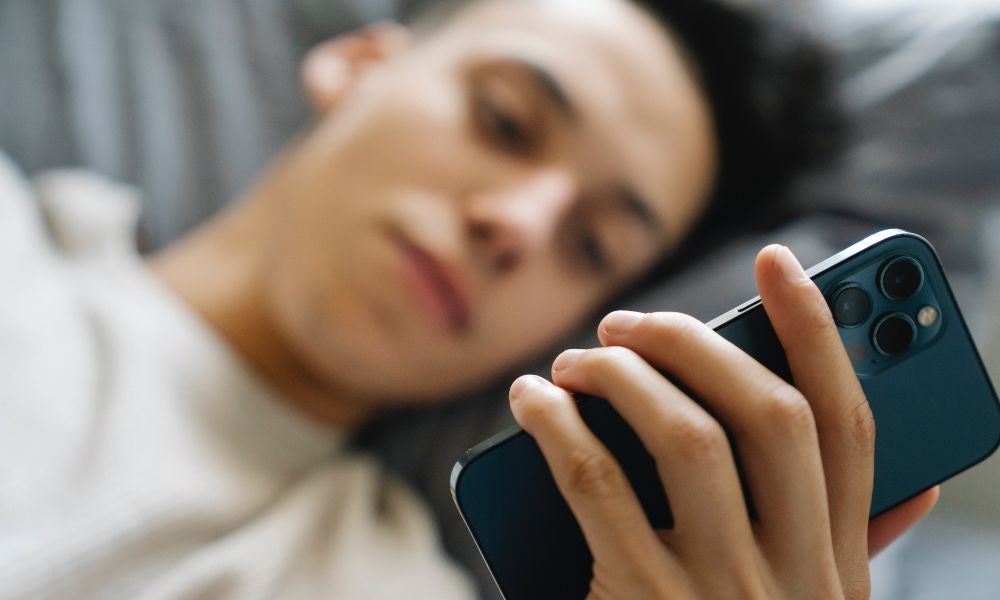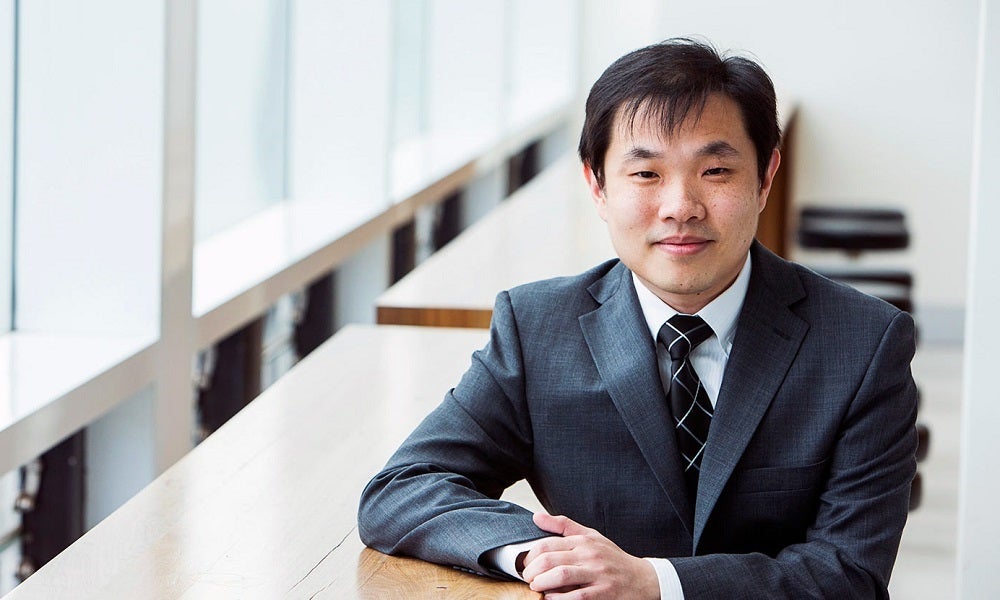App-solutely addicted: is your screen time impacting your health?
Our addiction to smartphone apps could be affecting our health negatively, leading to issues like sleep deprivation, says a UNSW Business School technology expert
Have you considered the potential health impacts of your phone usage? According to UNSW Business School’s Dr Eric Lim, a Senior Lecturer in the School of Information Systems and Technology Management, if you spend hours on your phone every day, it might be time to evaluate your screen time, as it could be affecting your health negatively.
Dr Lim recently embarked on a study alongside several international co-authors to explore technology's effects, specifically smartphone apps, on human health. The findings of the paper, Unravelling the Effects of Mobile Application Usage on Users’ Health Status: Insights from the Conservation of Resources Theory, suggest we may have become addicted to our small rectangular screens and the digital apps they contain.
“We become the willing product in the attention economy, but I do not believe we are better off in this economy even if we become more informed and hyper-plugged into events happening in this world,” said Dr Lim. “It becomes a vicious cycle where the more we are plugged in, the more we need these apps to provide ever-novel content to keep us hooked to the dopamine they provide.”
Dr Lim is a technology expert whose research aims to understand how to balance technology's potential benefits and risks. Dr Lim is contributing to developing practical solutions that enhance people’s wellbeing by researching the potential health impacts like sleep deprivation of mobile phone apps. As founder of the UNSW Crypto Clinic, Dr Lim's research is also expanding the horizon for people interested in learning about cryptocurrencies' potential business and social impact.

Nomophobia, technology addiction, and the rise of the attention economy
Dr Lim said many of us have probably experienced nomophobia, the fear or anxiety of being without our mobile phone or being unable to use it. This has become increasingly common due to the widespread use of iPhones and Androids, which have made us dependent on technology for communication, entertainment, and information. Digital apps have also been shown to have adverse effects on human cognition, resulting in shorter attention spans.
Dr Lim also noted technology companies use various techniques to capture and hold consumers' attention, which can encourage problematic use and addictive behaviours.
Young people and individuals relying heavily on their phones for work or social interactions may be more susceptible to experiencing nomophobia, he said. However, it can affect people of any age, gender, and profession.
“Studies have shown young adults between 18 to 24 developing nomophobia more than other age groups. In addition, we have seen how toddlers have been brought up in today’s environment with a mobile device as a surrogate to time-poor parents trying to juggle their time and energy across too many fronts,” said Dr Lim, who observed it is clear that society has normalised this phenomenon, and this is something that will be hard to change.
Read more: Charting a new course for university education in the age of ChatGPT
What are the adverse effects of cell phone addiction and overuse?
Dr Lim and his co-authors conducted a study to analyse the potential impact of nomophobia through questionnaire responses from 5842 students from a University in China.
In the study, nomophobia is defined as the fear of being without a mobile phone or being unable to use it for some reason. It was self-reported and measured using a scale developed and validated by past research.
The students were asked about their phone use habits, whether they thought they had nomophobia, how often they exercised, sleep quality, and general physical and mental health status (a measure modelled on past research). Several variables, including respondents’ demographic information, such as gender, age, family annual income, health information literacy, and long-term illness, were controlled for in the researchers' statistical analysis.
The findings revealed a positive correlation between nomophobia and sleep deprivation. Both nomophobia and sleep deprivation were found to negatively impact health, which the participants self-reported as their physical and mental health status.
For example, the more apps students had on their phones, the more they reported nomophobia, sleep deprivation, and poor health. Conversely, the students who spent less time on their phones were less likely to report nomophobia and issues with sleep and overall health.
Talking about how his phone usage has affected his health, Dr Lim said: “I am sure it comes as no surprise I observed this behaviour in myself, and it reached a point where I was so anxious if I were not checking my email or my team’s messages even when I was on annual leave. I would see these red notifications on my email apps, and their numbers increase with a growing sense of trepidation and dread regarding how much work was piling up as I cruised towards my destination. So, I felt the need to study this phenomenon and its impact on people and understand what we could do about it."

Interestingly, the researchers found exercise didn’t decrease nomophobia or sleep deprivation. Dr Lim said: “For instance, we expected that an increase in physical activity could reduce the impact of nomophobia on the user’s deteriorating psychological and physiological state.
“Instead, we found no support for the effect of increased physical activity on the relationship between nomophobia and the user’s psychological and physiological state. It neither strengthens nor weakens the relationship. So an increase in physical activity failed to provide the dampening effect we were expecting to see in how app usages affect the level of nomophobia."
But unlike exercise, they found students who reported having a good night's sleep generally were better at coping with the feeling of nomophobia than those who reported sleep deprivation. “One thing we understand from this study is how important sleep is in alleviating the adverse effect of anxiety and our ability to regulate our emotions,” said Dr Lim.
Read more: Lifeline CEO on how tech can help support employee mental health
How to curb excessive use and mobile phone addiction
The use of mobile phones and apps does allow people to simplify certain aspects of their lives. But we must all find ways to use apps efficiently and track the time spent on them to minimise the adverse impacts on sleep and overall health. If managed appropriately, Dr Lim said there’s no reason they can’t help us gain more time for rest, which is crucial for long-term health.
“For example, social networking and social media apps can also allow those of us who frequently travel overseas or are expatriates to keep in touch with friends and family even if we are not physically collocated,” explained Dr Lim. “Some mobile apps are quite good in how they help individuals meditate or sleep better using data analytics."
However, from his current research, Dr Lim said he could not make definitive statements about what should be done or recommend concrete steps. “But we can say that individuals should prioritise quality sleep in this environment where our energy and time are constantly in demand from our mobile devices,” he said.
Subscribe to BusinessThink for the latest research, analysis and insights from UNSW Business School
While he said there is no definitive answer to how much phone usage is appropriate for daily life, studies have shown it is best to avoid using the phone an hour before bed and an hour after waking up. In addition, you could try to turn off your phones for at least one hour (or longer) daily and guard yourself against over-commitment.
“If the world as presented and experienced by us through our mobile devices is creating a scenario where our time and energy are monetised and that we are placed on an electronic dopamine drip to the detriment of our health, then such research is only timely and important to remind us of the effects of using mobile devices and apps,” he said.
